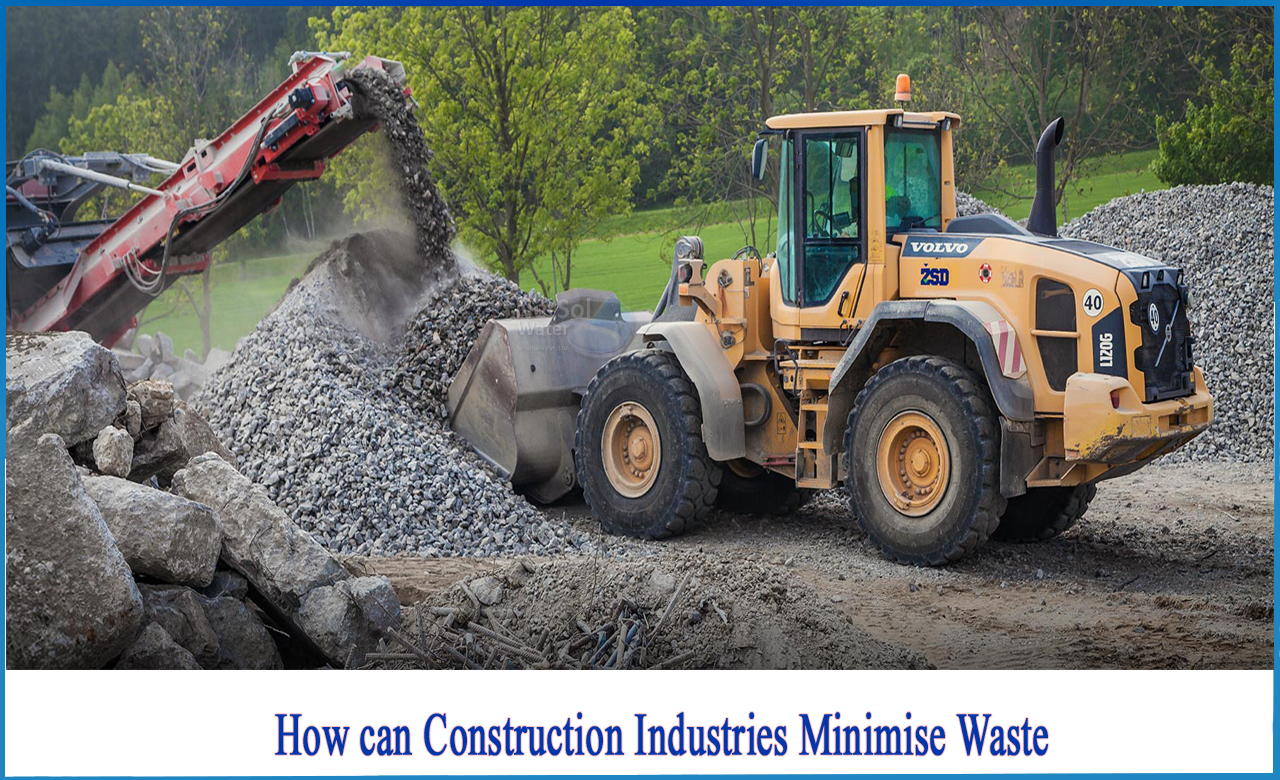How can construction industries minimise waste?
If ones organization handles construction or demolition sites, users most likely create a variety of waste. All of that waste ends up in the landfill if you don't have thoughtful, step-by-step waste management protocols in place.
Fortunately, the right waste management strategies can assist in improving the waste management practises of one’s company. Whether users focus on recycling programmes, make an effort to reuse more materials, or plan out one’s procurement needs in advance to decrease ones company's consumption, proper waste management planning can often help to manage some wastes more effectively.
Why incorporate a construction waste management plan?
- Lowering environmental impact: Good waste management practises allow your company to send less trash to landfills, where it would take up valuable space, pollute the environment, and potentially leak harmful substances into the soil and groundwater. More waste products diverted into recycling streams will just be critical in assisting construction companies in becoming more ecologically friendly.
- Maintaining compliance: Responsibly managing construction waste is also critical for keeping your company in compliance with the law. Local and federal regulations limit how you can legally dispose of construction materials; for example, the Environmental Protection Agency's (EPA) Resource Conservation and Recovery Act (RCRA) governs non-hazardous solid waste disposal. If users simply throw their trash in dumpsters or add it to municipal waste streams, users may face fines for improper disposal. By creating and following a comprehensive waste management strategy, users can stay up to date on relevant changes in the law, remain compliant, and avoid penalties more easily.
- Cost savings: Implementing a responsible waste management plan often means that your company's net expenses will be reduced as well. With a well-thought-out plan in place, you may be able to earn extra money by reselling used materials, while also lowering your expenses by reusing materials rather than purchasing new ones.
- Demonstrating obligation and truthfulness: A good waste management plan can help to improve their public image. Consumers increasingly want to know that they are doing business with companies that are responsible and environmentally conscious. Trying to engage in proactive, safe waste management practises, such as recycling construction waste, can enhance your brand and make clients feel good about doing business with you.
Suggestions for proper waste management in construction
>Identify recyclable materials: One of the most important steps in proper waste management is correctly identifying the recyclable materials used in someone construction processes, as well as the construction waste recycling methods available.
Consider using metals in high demand for reuse, or plastic components that are easy to recycle, when procuring materials. When user can ship many of their waste materials off for recycling and reuse instead of sending them to a landfill, a little planning to determine what eco-friendly materials, user can use will pay off significantly.
A few materials which can likely reuse or recycle:
· Concrete: Businesses can frequently send old concrete to be broken up and used as aggregate filler.
· Wood: Businesses can repurpose high-quality wood or have it processed into wood chips or mulch.
· Drywall: If an old building's drywall contains gypsum, it can often be reused in new drywall.
>Reduce construction errors: Everyone makes errors. However, if ones crews are consistently measuring or cutting incorrectly, or if they are using the wrong pipe or piece of lumber, users must address the issue. Otherwise, a lot of valuable materials will end up on the scrap heap.
>Install Recycling and Waste Containers on-site: Making waste and recycling bins readily available on-site is one of the simplest ways to improve company's recycling practises for construction and demolition waste. Make sure the receptacles are close to the waste generation areas so workers can easily access them, and remember to clearly label each bin. Each type of recyclable waste, such as concrete, metal, glass, wood, and plastic, should have its own container.Once the containers are in place, notify your employees and contractors of their presence and encourage them to use them. Users should also schedule regular waste disposal services so that waste does not accumulate in the receptacles around the site.
Netsol Water is Greater Noida-based leading water & wastewater treatment plant manufacturer. We are industry's most demanding company based on client review and work quality. We are known as best commercial RO plant manufacturers, industrial RO plant manufacturer, sewage treatment plant manufacturer, Water Softener Plant Manufacturers and effluent treatment plant manufacturers. Apart from this 24x7 customer support is our USP. Call on +91-9650608473, or write us at enquiry@netsolwater.com for any support, inquiry or product-purchase related query.



